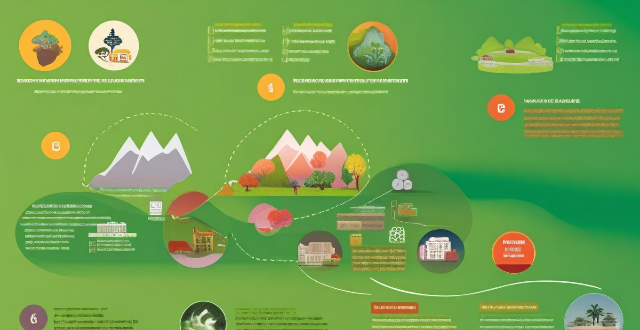Climate change has significant economic implications for citizens across various sectors. The impact on agriculture, energy, healthcare, and infrastructure can lead to increased costs and reduced incomes. However, by taking proactive measures such as diversifying crops, switching to renewable energy sources, investing in preventive healthcare, and improving infrastructure resilience, individuals and communities can prepare for and mitigate the negative impacts of climate change.

Economic Implications of Climate Change for Citizens
Climate change is a global phenomenon that affects every aspect of life, including the economy. It has far-reaching implications for citizens, and it is essential to understand these implications to prepare for them. This article will discuss the economic implications of climate change for citizens and how they can prepare for them.
Impact on Agriculture
Agriculture is one of the most vulnerable sectors to climate change. Extreme weather conditions such as droughts, floods, and heatwaves can significantly reduce crop yields, leading to food shortages and increased prices. This can have a significant impact on farmers' incomes and consumers' purchasing power.
How to Prepare:
1. Diversify crops: Farmers should diversify their crops to reduce the risk of losing their entire harvest due to extreme weather conditions.
2. Invest in irrigation systems: Investing in irrigation systems can help farmers manage water resources more effectively during droughts.
3. Practice sustainable farming: Sustainable farming practices such as crop rotation, intercropping, and organic farming can help improve soil health and resilience against extreme weather conditions.
Impact on Energy Sector
The energy sector is also heavily affected by climate change. The demand for energy increases during extreme weather conditions, leading to higher energy prices. Additionally, some energy sources, such as hydroelectric power, may be less reliable due to changes in precipitation patterns.
How to Prepare:
1. Switch to renewable energy sources: Switching to renewable energy sources such as solar or wind power can help reduce reliance on non-renewable energy sources and mitigate the impact of climate change on energy prices.
2. Improve energy efficiency: Improving energy efficiency in homes and businesses can help reduce energy consumption and lower energy bills.
3. Invest in energy storage technology: Investing in energy storage technology such as batteries can help store excess energy generated from renewable sources and ensure a stable supply during peak demand periods.
Impact on Healthcare
Climate change can lead to an increase in air pollution and the spread of infectious diseases, which can have a significant impact on healthcare costs. Rising temperatures can also exacerbate existing health conditions such as asthma and heart disease.
How to Prepare:
1. Invest in preventive healthcare: Investing in preventive healthcare measures such as vaccinations and regular check-ups can help reduce healthcare costs associated with climate change-related illnesses.
2. Improve indoor air quality: Improving indoor air quality by using air purifiers and maintaining proper ventilation can help reduce the impact of air pollution on health.
3. Stay informed about public health advisories: Staying informed about public health advisories related to climate change can help individuals take necessary precautions to protect their health.
Impact on Infrastructure
Extreme weather conditions can cause significant damage to infrastructure such as roads, bridges, and buildings, leading to costly repairs and reconstruction efforts. This can have a significant impact on local economies and taxpayers' wallets.
How to Prepare:
1. Invest in infrastructure resilience: Investing in infrastructure resilience through improved design and construction methods can help reduce the impact of extreme weather conditions on infrastructure.
2. Develop emergency response plans: Developing emergency response plans for extreme weather events can help minimize damage to infrastructure and expedite recovery efforts.
3. Encourage community preparedness: Encouraging community preparedness through education and training programs can help individuals and businesses prepare for and respond to extreme weather events more effectively.
In conclusion, climate change has far-reaching economic implications for citizens across various sectors. By understanding these implications and taking proactive measures to prepare for them, individuals and communities can mitigate the negative impacts of climate change and build a more resilient future.